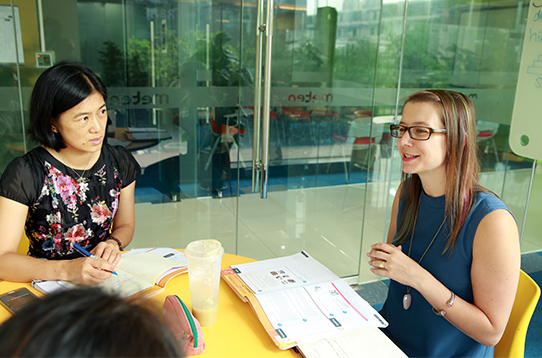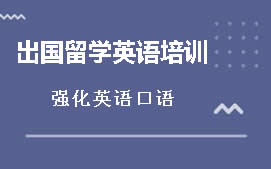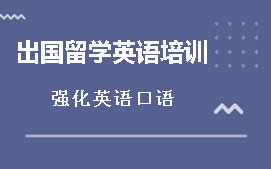英语阅读:怎么吸引企业里的八零后九零后职

Dear Annie: I’m in charge of a product development teamat a Fortune 500 company, and right now the divisionhead and I are setting a couple of big goals for 2015,especially regarding products we want to roll out by mid-year. I think our deadlines for different phases of theseprojects are realistic, but our ability to meet themdepends partly on keeping the same people we havenow, because having to bring replacement hires up tospeed would really slow us down.
The main thing that worries me is that, out of the 22people who report to me, 12 are in their mid-twenties toearly thirties. Our whole company has had a problemrecently with high turnover in this age group. Do you haveany suggestions about how to hold on to them, at leastfor the next few months? — Fingers Crossed
Dear F.C.: It’s true, Millennials are quicker to jump shipthan any other generation of employees, especially BabyBoomers. One new study from Payscale.com, forinstance, says that more than 40% of Boomers thinkpeople should stay in one job, or at least one company,for at least five years. A scant 13% of Millennials agree.
There’s also lots of evidence that young workers holdmuch different expectations about work than their eldersever did. So bosses intent on keeping them around mayhave to make some specific changes in the way they leadtheir teams. “Millennials want more openness andtransparency,” observes Kris Duggan, CEO ofBetterWorks, which makes a software platform aimed athelping businesses reach goals. “They also need moreencouragement, and more of a sense that they’re makingprogress, than most managers are used to givingpeople.”
Both as a co-founder of gamification companyBadgeville and from working with BetterWorks clientsnow, Duggan has seen close up what works, and doesn’t,in inspiring twenty-something talent to stay put. Herecommends these four steps:
Make goals clear, both theirs and yours. “Millennialscrave structure and guidance, so set clear expectations,”Duggan says. At the same time, explain what your owngoals are — meeting each of those demanding deadlines,for instance — and why they matter, not just to yourteam but to the division and the whole company.
“Often, managers just assign tasks without explanation,so people don’t see what their bosses are trying toaccomplish,” notes Duggan. “But it’s important toMillennials that you connect those dots. They want to seethe big picture.”
Get out of their way. Once you’ve explained exactly whathas to get done, Duggan says, “step back and let themfigure out how to do it. You really shift from being amanager to acting as more of a coach, and encouragethem to figure out the details.” Millennials tend to rebelagainst micromanagement (even more than most otherpeople), he adds, so avoid it. Your role is to help — insetting small interim goals and deadlines that lead up tolarger ones, for example — without hovering.
Give lots of positive feedback. Much has been made ofMillennials’ upbringing as the overpraised generation,where everybody wins a trophy just for showing up. But,according to Duggan, applauding progress andcelebrating milestones at work is not about thatsupposed sense of entitlement. Rather, he points toresearch showing that people who use a pedometer orFitBit to measure how much they walk each day take 30%more steps than people who don’t.
That’s not a coincidence. “Knowing how you’re doing, andhaving your progress acknowledged, is immenselymotivating,” he says, and the more frequently, the better. “Annual performance reviews do not work withMillennials,” he adds. “They look for feedback anddirection every week or two.”
Show them a career path. Despite what often looks like adisjointed series of short-term moves, Millennials are“intensely focused on the long term. They want to seehow their current job fits into their whole career plan,”Duggan says. “By having open conversations about howto be successful at different levels throughout thecompany, and what it takes to be promoted, you can takesomething very abstract and make it real.” Talking aboutthe future might also give Gen Yers a reason to look fortheir next job in-house, instead of somewhere else.
Any team leader who wants to create a Millennial-friendlyculture can do it, Duggan says, and January “is a greatopportunity to start being more open and collaborative —new year, new goals, new transparency.” Good luck.
Talkback: If you’re a Millennial, what would entice you tostay with your current employer? Leave a commentbelow.
親愛的的lol安妮:我现阶段在一家《财富》500强企业负责人产品研发精英团队,部门负责人与我不久制订了2015年的关键总体目标,在其中方案在2020年半年度发布的商品是头等大事。我觉得,大家为新项目不一样环节设置的最后限期是实际的,但这种总体目标可否完成却在于当今的精英团队可否长期保持,由于要寻找掌握状况的替代品,会推迟大家的进度速率。
我较大 的忧虑取决于,22名属下之中,有12人到二十五六岁到三十出头。这一年龄层的职工在大家企业的流通性**。我该怎样才可以吸引她们,最少让她们坚持不懈好多个月時间?您有哪些提议吗?——F.C.
親愛的的F.C.:对比别的年龄层的职工,尤其是婴儿潮一代,千禧一代(八零后、九零后)换工作的頻率的确高些。比如,*网址Payscale.com的全新科学研究显示信息,超出40%的婴儿潮一代觉得,一份工作中应当最少做够五年,或是最少在一家企业工作中五年。持一样见解的千禧一代却仅有13%。
除此之外,有很多直接证据证实,年青人对工作中的预估与老前辈们不一样。因此 ,要想吸引她们,顾主务必适度更改一下领导干部方法。BetterWorks企业着眼于打造出致力于协助公司达到目标的软件系统。该企业 CEO查尔斯•达根表明:“千禧一代期待管理方法更为对外开放和全透明。她们还*须大量激励,更期待觉得自身在不断发展。在她们来看,大部分管理人员习惯性出示的那类激励还还不够。”
达根也是游戏化企业Badgeville的创始人。与BetteWorks的顾客协作期内,他近距地观查到,什么对策有利于吸引二十多岁的年青人才辈出,什么对策没法*这一点。他强烈推荐了下述四个流程:
总体目标要确立,包含她们的与你自身的总体目标。达根讲到:“千禧一代期盼逻辑性和具体指导,因此 要设置确立的预估。”另外,要向她们表述你自己的总体目标——比如,追上这些严苛的最后限期——及其为何这种总体目标不但对你的精英团队,对单位和全部企业都十分关键。
达根讲到:“管理人员在布置任务的情况下一般不做一切表述,結果大家并不清楚她们的老总在努力创造如何的总体目标。但针对千禧一代来讲,搞清楚不一样工作中中间的关系十分关键。她们期待掌握全局性。”
不必变成她们的绊脚石。达根表明,向职工表述清晰总体目标以后,“便已不参与,让他们自己决策怎样完成这种总体目标。你需要从管理人员变化为相近教练员的人物角色,激励他们自己明确关键点。”他填补道,千禧一代通常对外部经济管理方法十分抵触(抵触水平超出了别的年龄层的大部分人),因此 要尽量减少外部经济管理方法。你的功效是出示协助——例如为完成更高的总体目标,设置较小的临时性总体目标和最后限期等——但决不会参与干预。
出示很多积极主动意见反馈。千禧一代是被过多赞美的一代,每一个人要是露个面便会获得一件*,这一点早已造成了大家的强烈反响。但达根觉得,称赞工作上的发展和里程碑式恶性事件,与说白了支配权观念不相干。反过来,他强调,有研究表明,应用计步软件或FitBit腕产生精确测量每日徒步间距的人,比不应用这种武器装备的人,每日走动的计步空出30%。
这并不是偶然。他讲到:“认识自己的主要表现,让自身的发展获得认同,可以巨大激发一个人的主动性。”而且这类意见反馈越经常越好。他填补道:“本年度绩效考评不宜千禧一代。她们期待每一两周便能获得一次意见反馈和引导。”
向她们展现职业生涯发展途径。尽管千禧一代常常开展看上去没什么技巧的短期内变化,但她们“实际上十分重视长期性发展趋势。她们想搞清楚当今的工作中是不是合适自身的总体职业发展规划。根据坦诚相见地讨论怎样在企业不一样等级获得成功,及其升职*须做到如何的标准等,顾主能够让一些十分抽象性的物品越来越具备可执行性。”讨论将来,能够给Y一代一个在內部找寻新发展机遇的原因,而不是挑选换工作。
达根讲到,要是想造就一种对千禧一代友善的文化艺术,一切精英团队管理者都能够*,而一月份“则是逐渐采用更为对外开放的合作管理方式的**机会——新的一年,新的总体目标,新的清晰度。”祝你开心。
意见反馈:如果你是千禧一代,你能受哪些方面的吸引住而挑选再次留到当今的企业呢?热烈欢迎评价。










